第87章 OUR SCHOOL(1)
WE went to look at it, only this last Midsummer, and found that the Railway had cut it up root and branch. A great trunk-line had swallowed the playground, sliced away the schoolroom, and pared off the corner of the house: which, thus curtailed of its proportions, presented itself, in a green stage of stucco, profilewise towards the road, like a forlorn flat-iron without a handle, standing on end.
It seems as if our schools were doomed to be the sport of change.
We have faint recollections of a Preparatory Day-School, which we have sought in vain, and which must have been pulled down to make a new street, ages ago. We have dim impressions, scarcely amounting to a belief, that it was over a dyer's shop. We know that you went up steps to it; that you frequently grazed your knees in doing so; that you generally got your leg over the scraper, in trying to scrape the mud off a very unsteady little shoe. The mistress of the Establishment holds no place in our memory; but, rampant on one eternal door-mat, in an eternal entry long and narrow, is a puffy pug-dog, with a personal animosity towards us, who triumphs over Time. The bark of that baleful Pug, a certain radiating way he had of snapping at our undefended legs, the ghastly grinning of his moist black muzzle and white teeth, and the insolence of his crisp tail curled like a pastoral crook, all live and flourish. From an otherwise unaccountable association of him with a fiddle, we conclude that he was of French extraction, and his name FIDELE. He belonged to some female, chiefly inhabiting a back-parlour, whose life appears to us to have been consumed in sniffing, and in wearing a brown beaver bonnet. For her, he would sit up and balance cake upon his nose, and not eat it until twenty had been counted. To the best of our belief we were once called in to witness this performance; when, unable, even in his milder moments, to endure our presence, he instantly made at us, cake and all.
Why a something in mourning, called 'Miss Frost,' should still connect itself with our preparatory school, we are unable to say.
We retain no impression of the beauty of Miss Frost - if she were beautiful; or of the mental fascinations of Miss Frost - if she were accomplished; yet her name and her black dress hold an enduring place in our remembrance. An equally impersonal boy, whose name has long since shaped itself unalterably into 'Master Mawls,' is not to be dislodged from our brain. Retaining no vindictive feeling towards Mawls - no feeling whatever, indeed - we infer that neither he nor we can have loved Miss Frost. Our first impression of Death and Burial is associated with this formless pair. We all three nestled awfully in a corner one wintry day, when the wind was blowing shrill, with Miss Frost's pinafore over our heads; and Miss Frost told us in a whisper about somebody being 'screwed down.' It is the only distinct recollection we preserve of these impalpable creatures, except a suspicion that the manners of Master Mawls were susceptible of much improvement. Generally speaking, we may observe that whenever we see a child intently occupied with its nose, to the exclusion of all other subjects of interest, our mind reverts, in a flash, to Master Mawls.
But, the School that was Our School before the Railroad came and overthrew it, was quite another sort of place. We were old enough to be put into Virgil when we went there, and to get Prizes for a variety of polishing on which the rust has long accumulated. It was a School of some celebrity in its neighbourhood - nobody could have said why - and we had the honour to attain and hold the eminent position of first boy. The master was supposed among us to know nothing, and one of the ushers was supposed to know everything. We are still inclined to think the first-named supposition perfectly correct.
We have a general idea that its subject had been in the leather trade, and had bought us - meaning Our School - of another proprietor who was immensely learned. Whether this belief had any real foundation, we are not likely ever to know now. The only branches of education with which he showed the least acquaintance, were, ruling and corporally punishing. He was always ruling ciphering-books with a bloated mahogany ruler, or smiting the palms of offenders with the same diabolical instrument, or viciously drawing a pair of pantaloons tight with one of his large hands, and caning the wearer with the other. We have no doubt whatever that this occupation was the principal solace of his existence.